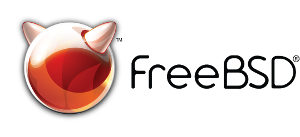FreeBSD 10.1-RELEASE Announcement
The FreeBSD Release Engineering Team is pleased to announce the
availability of FreeBSD 10.1-RELEASE. This is the
second release of the stable/10 branch, which improves
on the stability of FreeBSD 10.0-RELEASE and
introduces some new features.
Some of the highlights:
-
The new console driver, vt(4), has been added.
-
Support for FreeBSD/i386 guests has been added to
bhyve(4).
-
The bhyve(4) hypervisor now supports booting from a zfs(8)
filesystem.
-
Support for SMP was added to the armv6 kernels and
enabled by default in the configuration files for all
platforms that contain multi-core CPUs.
-
Initial support for UEFI boot has been added for the
FreeBSD/amd64 architecture.
-
Support has been added to cache geli(8) passphrases during
system boot.
-
Support for the UDP-Lite protocol (RFC 3828) has been added
to the IPv4 and IPv6 stacks.
-
The new filesystem automount facility, autofs(5), has been
merged from FreeBSD-CURRENT.
-
The sshd(8) rc.d(8) startup script now generates ED25519
sshd(8) host keys if keys do not already exist when
ssh_keygen_alg() is invoked.
-
OpenSSH has been updated to version 6.6p1.
-
The nc(1) utility has been updated to match the version in
OpenBSD 5.5.
-
Sendmail has been updated to 8.14.9.
-
The unbound(8) caching resolver and ldns have been updated
to version 1.4.22.
-
OpenPAM has been updated to Ourouparia (20140912).
-
OpenSSL has been updated to version 1.0.1j.
-
The pkg(8) package management utility has been updated to
version 1.3.8.
For a complete list of new features and known problems, please
see the online release notes and errata list, available at:
For more information about FreeBSD release engineering
activities, please see:
Availability
FreeBSD 10.1-RELEASE is now available for the amd64,
i386, ia64, powerpc, powerpc64, sparc64, and armv6
architectures.
FreeBSD 10.1-RELEASE can be installed from bootable
ISO images or over the network. Some architectures also support
installing from a USB memory stick. The required files can be
downloaded via FTP as described in the section below. While
some of the smaller FTP mirrors may not carry all architectures,
they will all generally contain the more common ones such as
amd64 and i386.
SHA256 and MD5 hashes for the release ISO and memory stick
images are included in the PGP-signed version of this announcement, available at:
Additional UEFI-capable images are available for the amd64
(x86_64) architecture.
The purpose of the images provided as part of the release are
as follows:
- dvd1
- This contains everything necessary to install the base FreeBSD
operating system, the documentation, and a small set of
pre-built packages aimed at getting a graphical workstation
up and running. It also supports booting into a "livefs"
based rescue mode. This should be all you need if you can
burn and use DVD-sized media.
- disc1
- This contains the base FreeBSD operating system. It also
supports booting into a "livefs" based rescue mode. There
are no pre-built packages.
- bootonly
- This supports booting a machine using the CDROM drive but
does not contain the installation distribution sets for
installing FreeBSD from the CD itself. You would need to
perform a network based install (e.g., from an FTP server)
after booting from the CD.
- memstick
- This can be written to an USB memory stick (flash drive)
and used to do an install on machines capable of booting off
USB drives. It also supports booting into a "livefs" based
rescue mode. There are no pre-built packages.
As one example of how to use the memstick image, assuming
the USB drive appears as /dev/da0 on your machine something
like this should work:
# dd if=FreeBSD-10.1-RELEASE-amd64-memstick.img \
of=/dev/da0 bs=10240 conv=sync
Be careful to make sure you get the target (of=)
correct.
- mini-memstick
- This can be written to an USB memory stick (flash drive)
and used to boot a machine, but does not contain the
installation distribution sets on the medium itself, similar
to the bootonly image. It also supports booting into
a "livefs" based rescue mode. There are no pre-built
packages.
As one example of how to use the mini-memstick image,
assuming the USB drive appears as /dev/da0 on your machine
something like this should work:
# dd if=FreeBSD-10.1-RELEASE-amd64-mini-memstick.img \
of=/dev/da0 bs=10240 conv=sync
Be careful to make sure you get the target (of=)
correct.
FreeBSD 10.1-RELEASE can also be purchased on CD-ROM
or DVD from several vendors. One of the vendors that will be
offering FreeBSD 10.1-based products is:
Pre-installed virtual machine images are also available for the
amd64 (x86_64) and i386 (x86_32) architectures in
QCOW2,
VHD, and
VMDK disk image
formats, as well as raw (unformatted) images.
FTP
FreeBSD 10.1-RELEASE may be downloaded via ftp from
the following site:
However before trying this site, please check your regional
mirror(s) first by going to:
Any additional mirror sites will be labeled ftp2, ftp3 and so
on.
More information about FreeBSD mirror sites can be found
at:
FreeBSD 10.1-RELEASE virtual machine images may be
downloaded via ftp from:
For instructions on installing FreeBSD or updating an existing
machine to 10.1-RELEASE please see:
Support
FreeBSD 10.1-RELEASE will be supported until
January 1, 2017. The End-of-Life dates can be found at:
Other Projects Based on FreeBSD
There are many "third party" Projects based on
FreeBSD. The Projects range from re-packaging FreeBSD into a more
"novice friendly" distribution to making FreeBSD
available on Amazon's EC2 infrastructure. For more information
about these Third Party Projects see:
Acknowledgments
Many companies donated equipment, network access, or man-hours
to support the release engineering activities for
FreeBSD 10.1 including The FreeBSD Foundation,
Yahoo!, NetApp, Internet Systems Consortium, ByteMark Hosting,
Sentex Communications, New York Internet, Juniper Networks,
NLNet Labs, iXsystems, and Yandex.
The release engineering team for 10.1-RELEASE
includes:
Trademark
FreeBSD is a registered trademark of The FreeBSD Foundation.
Love FreeBSD? Support this and future releases with a
donation
to The FreeBSD Foundation!
